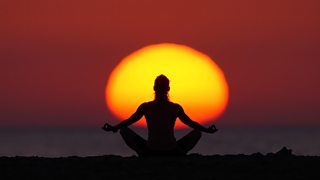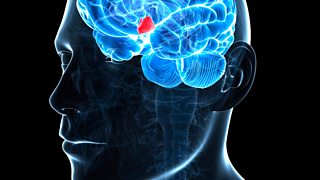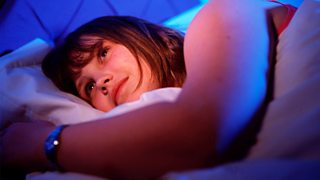Why you need more light in your life
Have you noticed the days getting longer? You may have found yourself face to face with the sun when you open the curtains in the morning, and that it’s no longer dark and gloomy when you leave your work at night. As summer approaches, the daylight hours are beginning to stretch out…
Most of us would admit to feeling healthier and more energised as winter fades into the distance. What role does light play in our well-being? How does it affect our bones and our brains?

-
![]()
Start the Week: Searching for happiness
Fighting the winter blues.
Light controls our circadian clock
Our body is regulated by 24-hour cycles that mirror the time it takes for the earth to rotate on its axis. This is known as the circadian clock and it affects everything in our body from how we sleep to our metabolism to when we release certain hormones.
Our circadian rhythm will continue without external cues (scientists who stayed in a cave with no natural light or time pieces found their circadian rhythm still followed a rough 24-hour pattern) but our body is also very responsive to light.
Light is an important signal that helps to kick start an enormous array of biological functions in the body.
-
![]()
In Our Time: Circadian Rhythms
The so-called body clock influencing a daily cycle of physical, behavioural and mental changes.
Light helps us to sleep and to wake up
One of the biological functions that light helps to kick start in our bodies is sleep. Light lets our brains know that the systems that promote wakefulness are in charge. Equally, when it starts to get dark our body begins to release melatonin, the chemical that helps us to sleep.
Some airlines are now using the cabin lighting on their planes to help combat jet lag. They are introducing bright light for boarding, relaxed lighting during dinner, and lighting that replicates a sunset to help passengers drift off to sleep.
Light can help us tackle insomnia
We now know that the type of blue light emitted from our tablets and phones can prevent us from releasing the necessary sleep hormones that help us to nod off.
New guidance from the UK Chief Medical Officers states that we should be having a technology free period before bed, and that gadgets should be left outside the bedroom.

However, although LED lighting is not a friend to sleep, Matthew Walker (a neuroscientist dedicated to researching the subject of sleep) explains how “daylight is key to regulating daily sleep patterns.” If you are a 'night owl' who struggles to fall asleep at night, then you will find that an hour’s exposure to morning sunlight will jump-start your brain and your body at the correct time – and help you to feel sleepy when you go to bed.
Light affects our mood
A daily dose of natural daylight isn’t just important for our sleep patterns. Light triggers changes in the brain that make us feel happier. When the body recognises sunlight, which reaches the brain via the optic nerve, levels of the feel-good chemical serotonin increase. Adversely, those whose levels of sunlight are restricted – like shift workers – may find they struggle with depression.
There is one mental health condition that directly relates to daylight hours becoming shorter in the autumn and winter months: Seasonal Affective Disorder or SAD. Sufferers of SAD will find depressive symptoms emerging as the days shorten (and thankfully waning as spring approaches). The current hypothesis is that SAD is an effect of our circadian rhythm becoming desynchronised – directly caused by the decrease in sunlight.
If you suffer from SAD you should consider getting your hands on a SAD lamp – a bright light that mimics daylight. Half an hour’s exposure in the morning can help to shift your circadian rhythm and improve your mood.
We are wired to look on the bright side

Isabel Hardman looks at our extraordinary capacity to deceive ourselves.
Sunlight keeps our bones strong
We need vitamin D in order for our bodies to absorb calcium and phosphate from our diet – minerals that are crucial for healthy bones, teeth and muscles. Conversely, a vitamin D deficiency can lead to soft and weak bones, and skeletal deformities.
As luck would have it, we can get almost all the vitamin D we need from the sun – which is why it’s also knows as the 'sunshine vitamin'. Miraculously, our body creates vitamin D when direct sunlight hits our skin and so most of us are able to get all the vitamin D we need this way. Off course, too much sun can be dangerous! Take care to wear sunscreen and avoid direct sunlight during the hottest part of the day.
Should you take a Vitamin D tablet every day?

A look at the research making Vitamin D the rising star of the supplement world.
More from Radio 4
-
![]()
In Our Time: Understanding your body clock
Circadian rhythms are are found throughout the living world. How much do you know about yours?
-
![]()
Nine tips for achieving wellbeing on a budget
Simple steps we can take in our everyday lives to help us stay calm and comfortable, healthy and happy.
-
![]()
How you can learn to be happier
Life lessons of happiness from modern-day practitioners of radically different philosophies, to learn how we can hack our happiness back.
-
![]()
In Our Time: The Sun
Melvyn Bragg and his guests discuss the science of the sun, source of all our energy.






